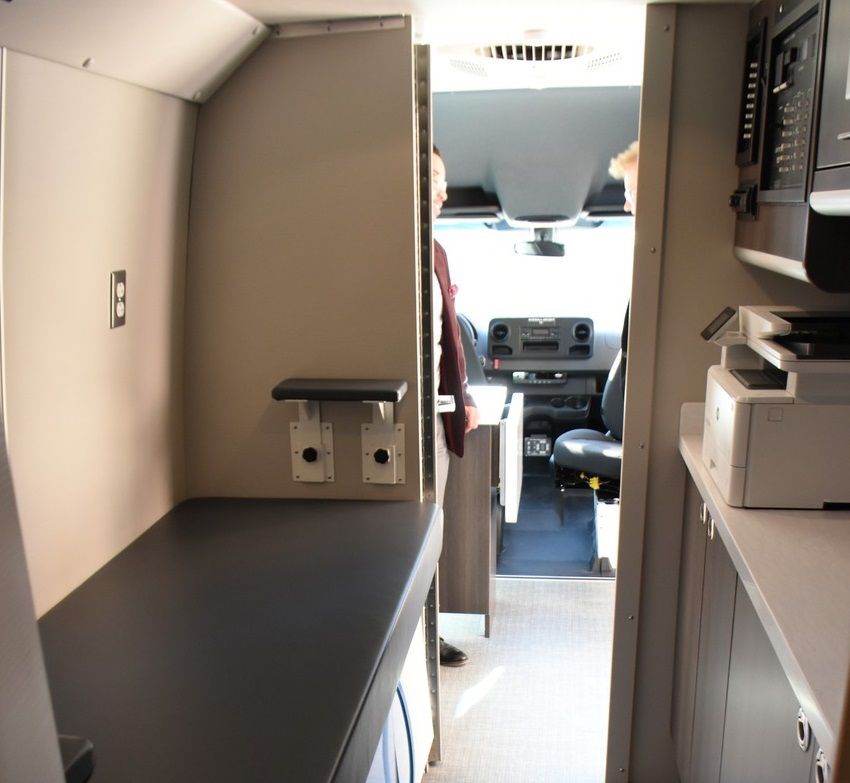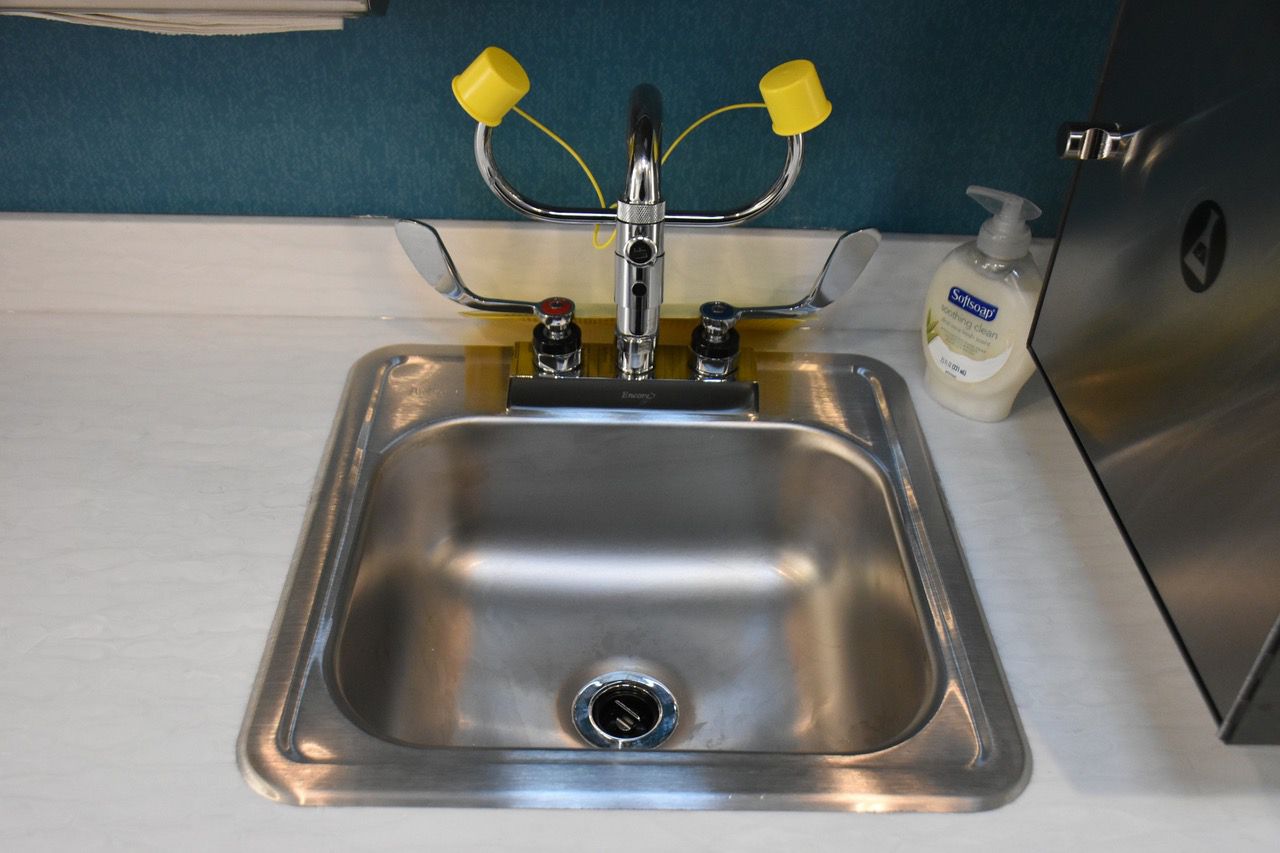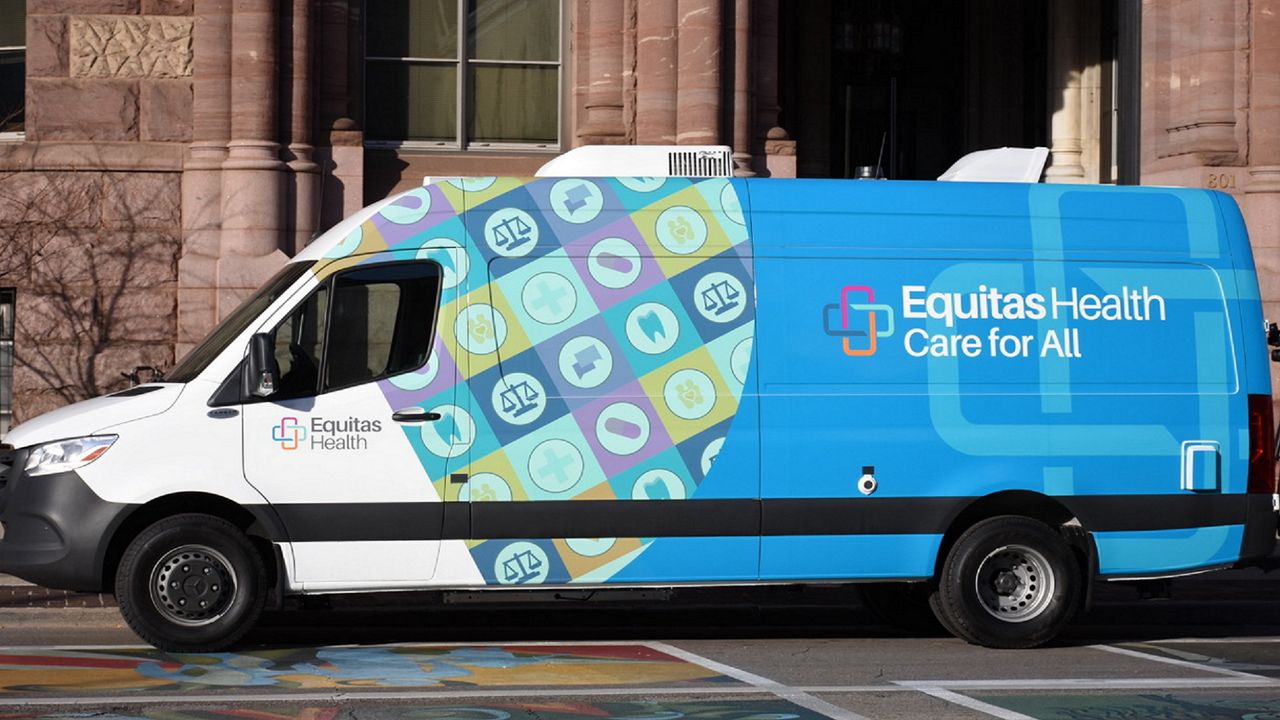CINCINNATI — A new mobile health clinic aims to provide greater access to a number of sexual health services to members of the LGBTQ community and other residents of southwest Ohio.
What You Need To Know
- Columbus-based Equitas Health will operate a full-time mobile sexual health clinic in southwest Ohio
- The clinic will offer testing and treatment for STIs and provide vaccinations as well
- Equitas Health launched the mobile clinics in 2021 as a way to provide greater access to health services
- The City of Cincinnati paid $100,000 toward the purchase of the vehicle
The Mobile Outreach Vehicle (MOVe) is being staffed by a team from Equitas Health, one of the nation’s largest LGBTQ and HIV/AIDS-serving health care organizations.
Cincinnati’s MOVe unit will operate as a “mobile sexual health clinic,” according to Equitas’ Dwayne Steward. Patients can get testing and treatment for HIV, gonorrhea, chlamydia, syphilis and hepatitis C. The van will also offer vaccines, including those for COVID-19 and monkeypox.
Patients accessing the van can also get help navigating the health care system, enrolling for medical insurance and connecting with other providers.

Equitas Health offers the mobile clinic services free of charge.
“This new mobile unit will be an important tool in helping end the HIV epidemic right here in Cincinnati,” Steward said. “Unfortunately, groups that are most affected by poor health and wellness outcomes are less likely to access brick-and-mortar health care facilities. This new MOVe unit allows us to go where care is needed most.”
A nonprofit based in Columbus, Equitas Health has 19 offices in 13 cities, serving tens of thousands of patients in Ohio, Kentucky and West Virginia each year. It also operates pharmacies serving patients in Ohio and Texas.
Equitas Health has a community health center on Gilbert Avenue in Walnut Hills. But through the new mobile clinic, the organization looks to expand its reach across southwest Ohio and provide greater access to its services.
That’s especially important for serving the needs of people with lower incomes, who are older or who may not have access to reliable transportation, according to Robert Copeland, Equitas Health’s interim CEO.
“Comprehensive and affirming health care should not depend on your zip code,” Copeland said. “We know the disparities that exist in the communities we serve. So, if they can’t come to us, we will come to them.”
Michael Chanak, a longtime advocate for LBGTQ+ rights, feels the mobile van is a big win for the region. While there’ve been advancements in treatments in recent years, access to health care and educational resources remains as important as ever, he said.
“It’s a mistake to overlook that HIV is a pandemic. Folks are still testing positive and it’s concerning, particularly for youth and underserved communities,” Chanak added. “This van increases access to testing and counseling. It’s that simple.”
The Equitas Health mobile unit teams work in lockstep with local health clinics as part of a multi-pronged approach to patient care.
If a mobile unit patient tests positive for a sexually transmitted infection (STI), they’ll receive a referral to a longer-term care option at the health clinic or another provider.

“It’s really about getting out there and helping people know their status, and then connecting folks to care they need,” said Anthony Clemente, a spokesperson for Equitas Health.
Clemente reiterated that, while services are geared toward the LGBTQ+ community, anyone can access them.
In recent months, the state of Ohio has experienced an increase in the number of monkeypox cases, a disease that has largely affected men who have sex with men.
“While monkeypox isn’t the reason we started the mobile outreach program, it shows why we need to be doing this,” Clemente said.
Equitas Health debuted its mobile health fleet in early 2021 amid the COVID-19 pandemic. The organization maintained a regular schedule of events they plan to visit around the state including PRIDE parades and festivals.
The program’s success prompted the expansion. The van in Cincinnati is the first to provide services exclusively to a specific part of Ohio.
There are four MOVe vehicles right now, but Equitas Health is already looking at adding more.
Mayor Aftab Pureval said the mobile unit has the potential to make a profound impact on the health and wellness of the area’s most vulnerable residents.
The City of Cincinnati felt so strongly about the project that it committed $100,000 toward the vehicle’s purchase.
“As a city committed to helping every resident live a happy, healthy, rewarding life, we have to do what we can to get out into the community and meet people where their needs are,” Pureval said.
A map and schedule of the sites where all of its MOVe vehicles will visit are available on the Equitas Health website.



